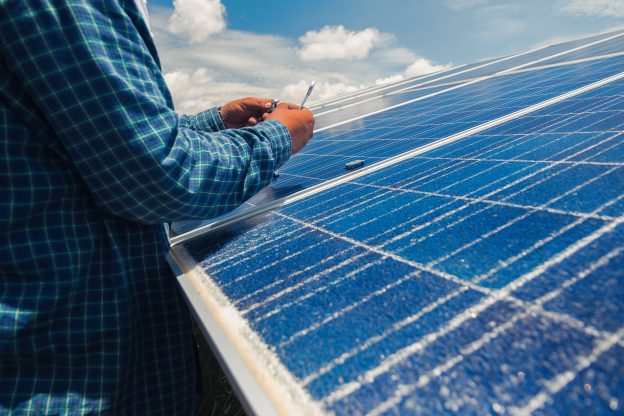Almost a quarter of energy produced in Germany in 2013 was renewable energy, but there is a gap between northern and southern Germany as these two regions have different natural and social backgrounds. In order to even out this imbalance, German government has started a “renewable highway” project to bridge the gap, sending energy from the north to the south. However, Philip Olterman, a reporter from The Guardian, indicated that the project looks more likely to divide the country as the resistance is growing in Bavaria.
Being regarded as a connection between the northern and the southern Germany, the 500-mile (800 km) energy highway is planned to balance the supply-and-demand of electricity. “While windfarms in the northern flatlands are forecast to eventually outstrip the area's power needs, the highly industrialised south is still heavily reliant on nuclear energy,” wrote Olterman in his report. “Solar power, though more prevalent in the south, is still too unreliable to compensate for the planned phasing out of five nuclear power stations in the southern half of the country.”
 |
| Source: The Guardian |
Germany has been attempting to abandon using nuclear power in recent years and there is a huge progress in the northern part. To help Bavaria, the renewable energy highway project, which will start in Wilster in Schleswig-Holstein and end in Grafenrheinfeld in Bavaria, was passed last summer; additionally, there are also plans for corridors branching out east and west, totalling 1,700 miles (2,800km) in length. All these high-voltage lines will be finished by 2020. Nonetheless, not everyone accepts these projects. In Franconia in northern Bavaria, more than 1,000 members raised protests against the energy corridor and they are not alone.
According to the report, people not only protest against the risk of living near these lines, but also argue that it is easier to fulfill Bavaria’s electricity demand through new gas power stations, which means the controversial projects are nothing necessary.
Although the German parliament passed laws for these energy highways projects, some politicians start making objections for local people’s voices so the situation turns worse. Southern politicians call for suspending these projects while northern ones accuse the CSU of trying to interfere with the energy transition (“Energiewende” in German) program.
"When we switch off the last nuclear power station, we also need renewable energy in Bavaria," said Robert Habeck, Schleswig-Holstein's energy minister, in Olterman ‘s report. The author comments: “this highway may divide the country rather than unite it.”
To read the full report, please visit: North-south divide threatens Germany's renewable energy highway







